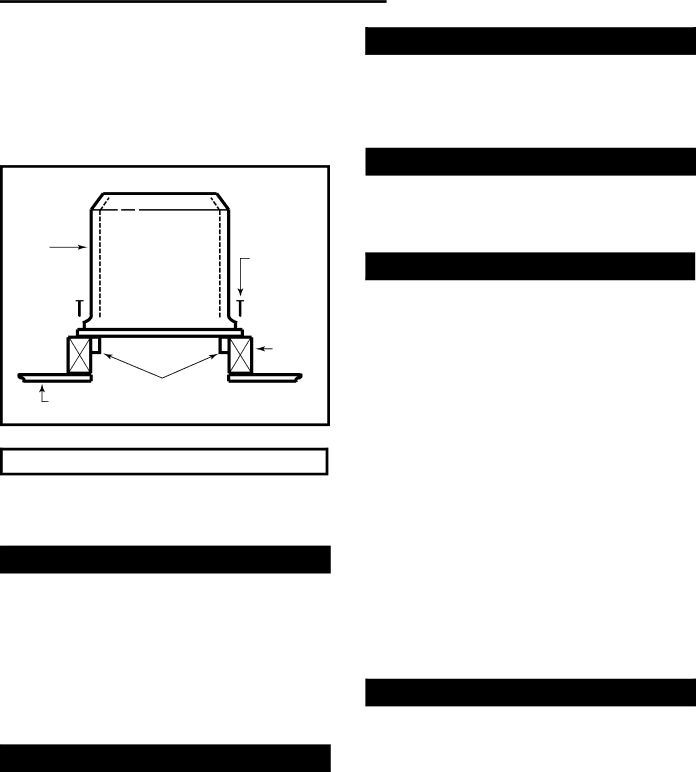
NOTE: In the U.S., it is a good idea, although not al- ways required, to install an attic insulation shield where
Install the attic insulation shield with the flanges on its base extending down into the framing hole. Nail each corner of attic insulation shield to the framing members of the ceiling hole using 8d nails. Attic shields are not
required at the roof.
Attic |
|
Insulation |
|
Shield | Nails |
| |
| (4 required) |
| Attic Joist |
| Base |
Ceiling | Flanges |
| FP263 |
Fig. 19 Attic shield installlation (Canadian requirement). | |
Continue Installing Pipe to Complete Run
Continue attaching pipe sections to complete system to next level always being careful that the pipe is firmly snapped locked in place before proceeding to next pipe section.
Chimney Supports
If chimney supports are required, they are installed the same as elbows. Nail chimney support straps to adjacent structural framing, as shown on, Page 8, Fig.
9.Bend straps as necessary and make sure they are
secure so they will support the weight of the chimney. A chimney support is 2¹⁄₂" (64 mm) long when installed. Consider this dimension when determining how many straight chimney sections are needed.
NOTE: Chimney supports are generally used in long runs in a chase installation.
Additional Ceilings
If you encounter additional ceilings, repeat same steps required for first ceiling installation. Refer to firestop illustration on Page 12, Figure 18.
WR / WC Series Woodburning Fireplace
Penetrating the Roof
Run pipe to roofline. Since the chimney system must be vented to the
If a chase is used, refer to the installation manual pro- vided with the termination cap.
Locate Chimney Centerpoint On Roof
Use same procedure detailed in locating centerpoint of the flue system.
Drive a nail up through roof at the center point. This will determine center point on outside of the roof.
Cut and Frame Roof Hole
Size of roof hole varies with the type of chimney ter- mination installed. Refer to installation instructions provided with the chimney termination to find correct size of roof hole.
There must be a 1¹⁄₂ (38 mm) air space between out- ermost portion of chimney sections and any adjacent combustible surfaces. (Combustible surfaces include burnable materials such as: ceiling members, joists, flooring, combustible insulation and roof structures.)
WARNING: DO NOT PACK REQUIRED AIR SPACES WITH INSULATION OR OTHER MATERIALS.
Mark an outline of the roof hole around the center of the point nail. NOTE: Hole dimensions given in the chim- ney top installation instructions are horizontal dimen- sions; therefore, the hole size must be marked on the roof accordingly.
Cover the opening of the installed chimney so debris cannot get into the system.
Cut and frame the hole. It is good practice to use fram- ing lumber that is the same size as the rafters. Install the frame securely because the chimney top and flash- ing anchored to the frame must be able to withstand heavy winds.
Install Remainder of Chimney Sections
Since you have already preplanned the height of your termination according to the Ten Foot Rule, continue to install pipe to the predetermined height.
Check the chimney top installation instructions for details on how high above the roof top the chimney sec- tions (all pipes) should extend.
20014528 | 13 |
